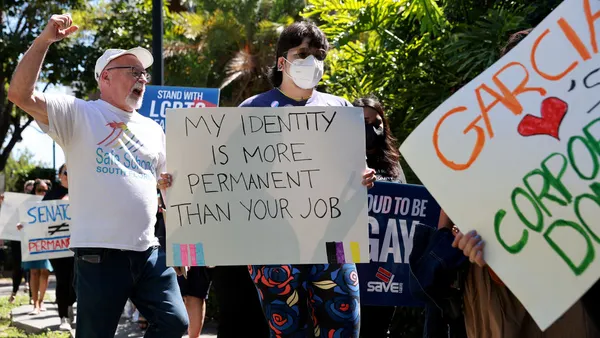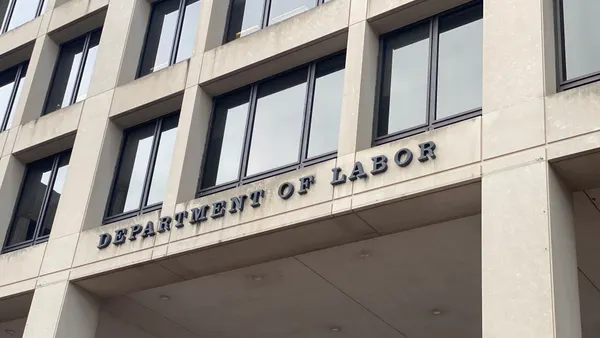Dive Brief:
- Seventy-four employers have used the U.S. Department of Labor's wage and hour self-reporting program since its April 2018 launch, handing over $4 million in back wages to nearly 7,500 employees, according to the agency.
- The voluntary Payroll Audit Independent Determination (PAID) program allows employers to review their pay practices, report violations of the Fair Labor Standards Act (FLSA), and then work with DOL's Wage and Hour Division (WHD) to correct mistakes and get workers properly paid.
- WHD said the program is both effective and efficient, reporting that PAID procedures take half the time and staffing resources of other compliance actions but yield ten times the back wages for employees per staff hour invested.
Dive Insight:
DOL is proclaiming PAID a success, but is it a good deal for employers? Tammy McCutchen of Littler Mendelson, PC, a former WHD administrator who served during the President George W. Bush administration, has touted the benefits of the program — namely, that it allows employers to reduce or end liability without damages.
However, Paul DeCamp of Epstein Becker & Green, PC, who also served as WHD administrator under Bush, previously told HR Dive that the program presented a lot of risk to employers, due to the chances of follow-on state enforcement action or private litigation.
In 2018 when the program launched, a coalition of 11 state attorneys general announced its opposition to PAID on the grounds that it enables employers to self-audit and self-report breaches without agency oversight. Attorney General Josh Shapiro of Pennsylvania said in a statement that the program "takes away workers' rights" by giving employers a "free pass" to pay overdue wages to workers without facing penalties.
Whether they use PAID or not, employers are well-advised to review their practices for FLSA compliance (although there are a few factors to consider before doing so). Now is a particularly good time for employers to review their pay practices, given the release of the long-awaited final rule on overtime changes.












